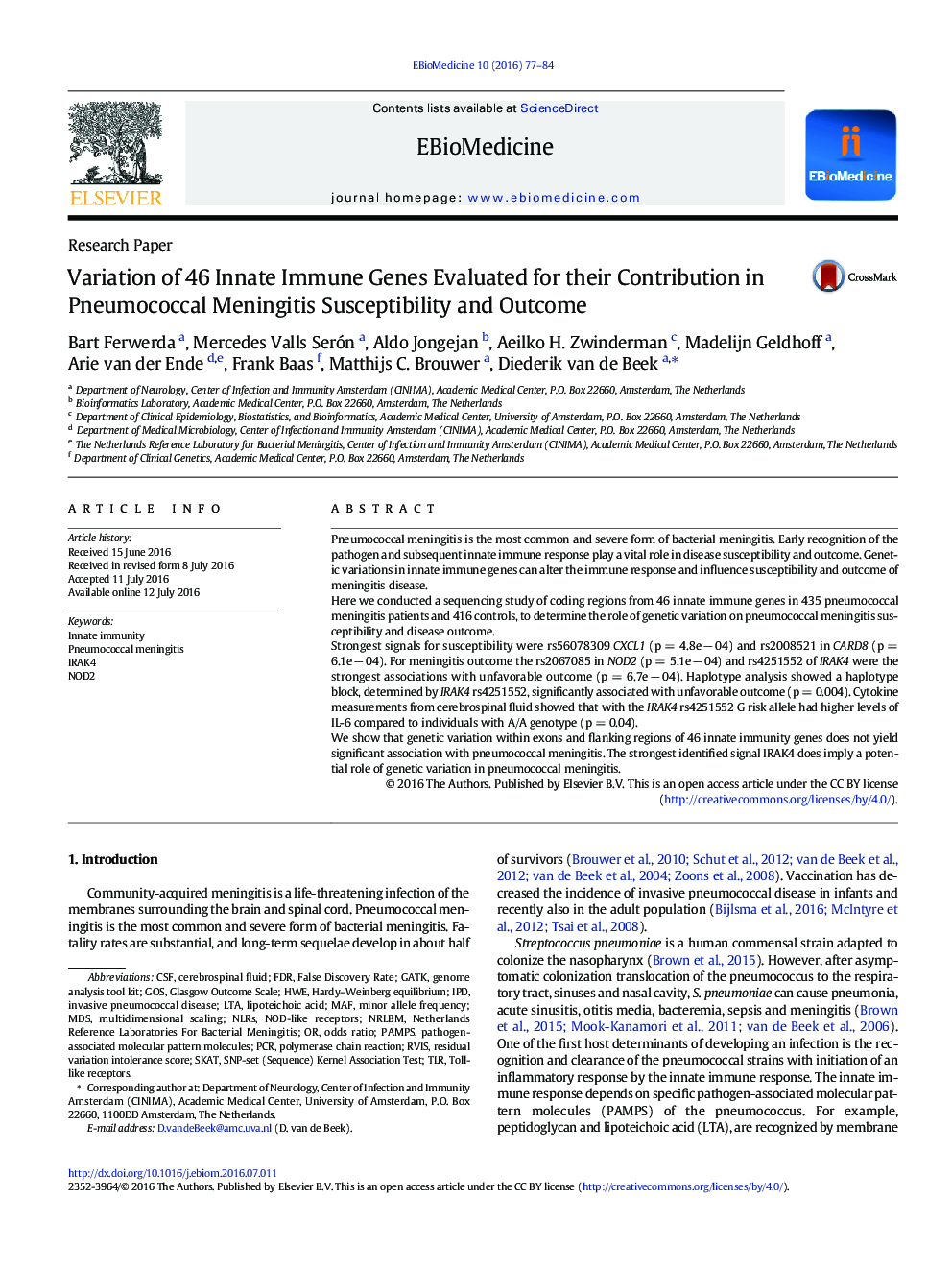| کد مقاله | کد نشریه | سال انتشار | مقاله انگلیسی | نسخه تمام متن |
|---|---|---|---|---|
| 2120620 | 1546889 | 2016 | 8 صفحه PDF | دانلود رایگان |
• Exome variations of 46 innate immune genes show no association with pneumococcal meningitis susceptibility and outcome.
• Variations that have previously been associated with invasive pneumococcal disease or meningitis could not be replicated.
• Highest signals found were variations in CXCL1 and CARD8 for susceptibility and NOD2 and IRAK4 for outcome.
• The IRAK4 rs4251552 variant shows a trend where patients with a G-allele have higher IL-6 levels in their liquor.The pneumococcus is the most common causative pathogen of bacterial meningitis. We investigated the association of genetic variation within the coding sequences and flanking intronic regions of 46 innate immunity genes. These genes are responsible for our first line of defense during invading pathogens. In a cohort of 435 pneumococcal meningitis patients and 416 controls we found that variation within CXCL1 and CARD8 were the strongest signals associated with pneumococcal meningitis susceptibility. For disease severity we identified variations in NOD2 and IRAK4 genes to be associated with outcome. These findings can help in the understanding and treatment of pneumococcal meningitis.
Pneumococcal meningitis is the most common and severe form of bacterial meningitis. Early recognition of the pathogen and subsequent innate immune response play a vital role in disease susceptibility and outcome. Genetic variations in innate immune genes can alter the immune response and influence susceptibility and outcome of meningitis disease.Here we conducted a sequencing study of coding regions from 46 innate immune genes in 435 pneumococcal meningitis patients and 416 controls, to determine the role of genetic variation on pneumococcal meningitis susceptibility and disease outcome.Strongest signals for susceptibility were rs56078309 CXCL1 (p = 4.8e − 04) and rs2008521 in CARD8 (p = 6.1e − 04). For meningitis outcome the rs2067085 in NOD2 (p = 5.1e − 04) and rs4251552 of IRAK4 were the strongest associations with unfavorable outcome (p = 6.7e − 04). Haplotype analysis showed a haplotype block, determined by IRAK4 rs4251552, significantly associated with unfavorable outcome (p = 0.004). Cytokine measurements from cerebrospinal fluid showed that with the IRAK4 rs4251552 G risk allele had higher levels of IL-6 compared to individuals with A/A genotype (p = 0.04).We show that genetic variation within exons and flanking regions of 46 innate immunity genes does not yield significant association with pneumococcal meningitis. The strongest identified signal IRAK4 does imply a potential role of genetic variation in pneumococcal meningitis.
Journal: EBioMedicine - Volume 10, August 2016, Pages 77–84
